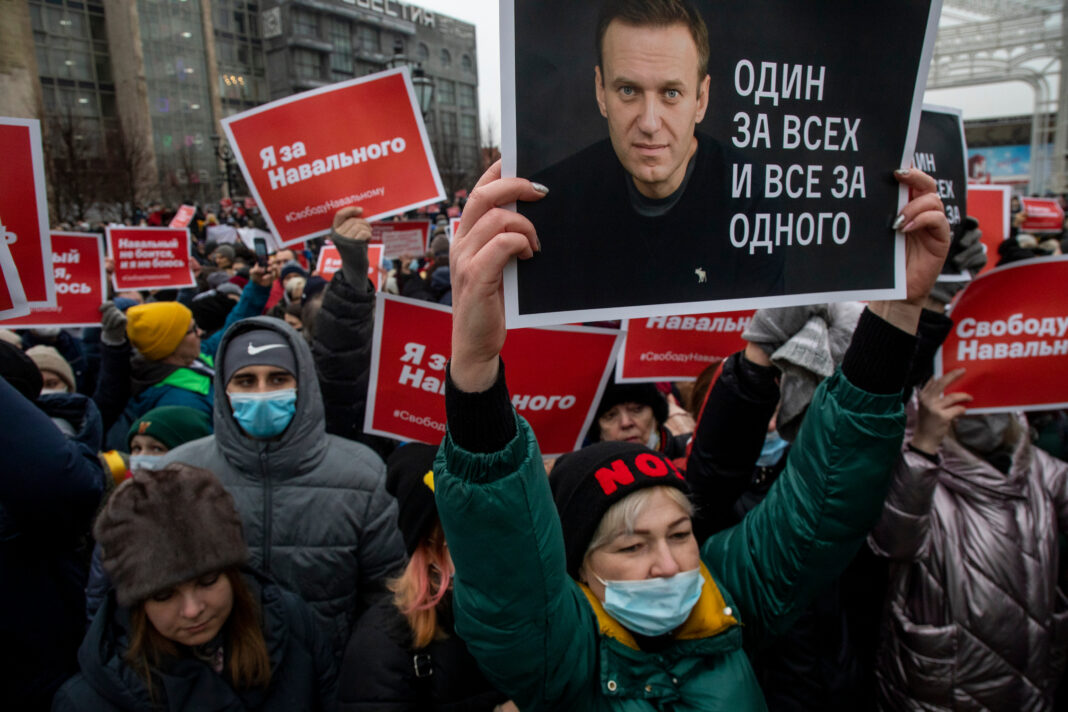by Kateryna Mishchenko
On February 16, Alexei Navalny, whom Russian president Vladimir Putin declared an “extremist,” suddenly died in a correctional colony. Putin had sent his main political opponent to prison long ago and for a long time.
Declared an “extremist” in Russia, the head of the Russian Anti-Corruption Foundation ended up in pre-trial detention in 2021, when he returned to Russia after being poisoned with “Novichok,” and then received his first 9-year sentence in March 2022.
In 2023, he was charged with another case, and Navalny was sent to the “Polar Wolf” colony in the town of Kharp, Yamalo-Nenets Autonomous Okrug, for 19 years. The cause of death is spread by Russian propaganda. According to them, Navalny died because a thrombus had detached from him.
Alexei Navalny’s political career began in the early 2000s. During this time, he attempted to fight corruption in Russia and conducted numerous investigations, including those concerning Vladimir Putin. Against the backdrop of his active political activities and the sympathy of many Russians, Putin repeatedly tried to imprison him. The Kremlin also attempted to assassinate Navalny in 2020 when he was poisoned with Novichok.
After a prolonged period of coma and treatment abroad, the opposition leader decided to return to Russia. During a pre-flight press conference, Navalny responded to journalists’ questions by stating that his arrest was impossible. However, upon his arrival in Moscow, he was detained by security forces and subsequently imprisoned. Overall, Navalny was sentenced to approximately 30 years in prison.
Navalny’s Anti-Corruption Foundation announced the launch of the “Russia without Putin” campaign and called on Russians to use the time before the elections to campaign against the dictator. “For Putin, the 2024 elections are a referendum on approval of his actions, on approval of war. On March 17, Russia should realize that the majority does not want to see Putin at the helm of the country. The voting results will be falsified, but our task is to make it obvious to everyone – Russia no longer needs Putin,” the organization said.
The Central Election Commission (CEC) of Russia refused to register candidates for the post of President of Russia, Boris Nadezhdin and Sergei Malinkovich. The reason for the refusal was the insufficient number of reliable signatures, according to the CEC of Russia, collected in support of the candidate’s nomination. Nadezhdin stated that he disagrees with the commission’s decision and intends to challenge it in the Supreme Court of Russia.
The presidential elections in Russia will take place on March 15-17, 2024. Nikolai Kharitonov (CPRF), Leonid Slutsky (LDPR), and Vladislav Davankov (“New People”) were allowed to participate. The current President of Russia, Vladimir Putin, will also participate in the elections and intends to become president for the fifth time.
Initially, 15 candidates applied for the post of President of Russia. Signatures for registration were not required only for three candidates nominated by parties represented in the State Duma.
According to the decision of the Russian Central Election Commission, Moscow plans to conduct voting in the presidential elections, including in the occupied Ukrainian regions – despite the fact that the West and Kyiv consider such voting illegitimate.
Ukrainian President Zelensky, in Berlin with Chancellor Scholz, bluntly blamed Putin for Navalny’s death, emphasizing Putin’s disregard for human life. Russian figures like Mikhail Khodorkovsky echoed similar sentiments, holding Putin personally responsible for Navalny’s fate. Leaders worldwide extended condolences, with French President Macron condemning Russia’s treatment of dissenters and British PM Sunak mourning Navalny’s loss as a tragedy for Russian democracy. German Chancellor Scholz recalled conversations with Navalny, highlighting the courage it took for him to return to Russia. US President Biden asserted Putin’s culpability, labeling Navalny’s death as evidence of the cruelty of Putin’s authoritarian rule. He praised Navalny’s bravery, ensuring he will be remembered for it.
Meanwhile, memorials for Alexei Navalny were held in Russian cities. People brought flowers, candles, and portraits of the politician to memorials for political prisoners and victims of repression in their cities. Authorities obstructed them: police surrounded the areas around the monuments, unknown individuals destroyed spontaneous memorials, taking away flowers and other memorabilia. Over two days, more than 340 people were detained in 30 cities.
On the cover photo, 23rd of January, 2021 People take part in an unauthorized rally in support of Russian opposition leader Alexei Navalny in Tverskaya Street in the central Moscow, Russia ©NickolayV/Shutterstock.com
























